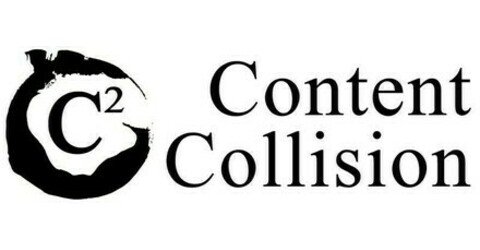Meta sued in Japan over fake celebrity-endorsed investment ads
Victims in japan file lawsuits against meta for failing to block fraudulent investment ads using fake celebrity endorsements.

Meta, the parent company of Facebook and Instagram, is facing multiple lawsuits in Japan for allegedly failing to block deceptive social media ads featuring fake celebrity endorsements. Victims claim they were tricked by fraudulent investment promotions using the names and images of well-known figures.
Meta, formerly known as facebook, owns major social media platforms like Facebook, Instagram, and Whatsapp. As a global tech giant, the company generates substantial revenue from digital advertising.
According to reports from Japanese media outlets including NHK and Kyodo news, a group of 30 victims filed lawsuits on October 29 across five district courts: Saitama, Chiba, Yokohama, Osaka, and Kobe. They are seeking JP$435 million (approximately HK$23 million) in damages from meta and its Japanese subsidiary. The plaintiffs allege that they fell victim to investment-soliciting ads on Facebook and Instagram that falsely claimed endorsements from celebrities like entrepreneur Maezawa Yusaku, founder of Zozotown, and Takafumi Horie, another well-known business figure.
The lawsuits state that the victims were persuaded by ads impersonating celebrities, leading them to transfer money to specific accounts under the belief they were making profitable investments. The total amount lost by the victims reportedly exceeds JP$100 million (about HK$5 million). Despite requests from Maezawa and Horie to remove the misleading ads, Meta allegedly did not take action, causing further financial harm, according to the plaintiffs' legal team.
The plaintiffs argue that Meta bears responsibility for reviewing and removing harmful ads, especially when they can foresee the potential risks to users. The victims’ legal representative stated at a press conference in Osaka that Meta’s reluctance to delete questionable ads is unlawful. They indicated plans to file additional lawsuits and encouraged others affected by similar scams to come forward.
In response to the lawsuits, a Meta spokesperson declined to comment on specific legal cases. However, the company stated that it is intensifying its efforts to combat scam ads and investing significantly in technology and measures to address the issue.
This is not the first time Meta has faced legal action in Japan over fake ads. In April, four individuals filed a lawsuit in Kobe after being deceived by fraudulent online investment ads featuring celebrity images without consent. They sought JP$23 million (HK$1.2 million) in damages from Meta’s japanese branch, highlighting a growing concern over the tech giant’s ad monitoring practices.

Tips to identify and avoid fake investment ads
With the rise of online investment ads, it’s becoming easier for scammers to deceive unsuspecting investors. To protect yourself from potential fraud, here are some practical steps you can take before engaging with any investment opportunity you come across online.
1. Verify the source before investing
Always check the official website or social media account of the company or celebrity mentioned in an investment ad. Avoid relying on ads that appear on social media, as they can easily be manipulated or faked. Official sources will have verified profiles and will not solicit investments directly through ads.
2. Be cautious of high-return promises
Ads that promise guaranteed high returns with little or no risk are often scams. Legitimate investments typically involve some level of risk, and no credible investment opportunity guarantees massive profits. If an ad sounds too good to be true, it likely is.
3. Use ad reporting tools
Social media platforms like Facebook and Instagram have tools for reporting suspicious or fraudulent ads. If you come across an ad that appears deceptive, report it immediately. This helps platforms take action faster and potentially protects other users from falling victim to scams.
Notable fake ad cases globally
The increasing number of fake investment ads on social media has led to several high-profile legal cases, illustrating the dangers of misleading advertisements. Here are some notable examples that show the severe impact of fraudulent investment schemes.
1. Google faces lawsuit over fake celebrity-endorsed Bitcoin ads
In 2021, Google was sued in Australia by a group of celebrities, including TV host and entrepreneur Andrew Forrest, for failing to prevent fake bitcoin investment ads that misused their likeness. Victims lost substantial amounts, leading to increased scrutiny over Google’s ad review processes.
2. Twitter and Tesla investment scam
In 2020, Twitter was hacked in a major cyberattack that targeted high-profile accounts, including those of Elon Musk, Barack Obama, and Bill Gates. The hacked accounts promoted a Bitcoin scam, promising users doubled returns on their investments. The incident caused widespread financial losses and highlighted vulnerabilities in social media security.
3. Facebook sued in Ireland over fraudulent ads
In 2019, Facebook faced legal action in Ireland from local celebrities whose images were used in scam ads promoting fake investment schemes. The plaintiffs argued that Facebook failed to prevent the ads despite repeated reports. The case drew attention to the need for stricter ad regulations on social media platforms.
As online scams become increasingly sophisticated, companies like Meta face mounting pressure to implement stricter ad monitoring and ensure user protection.
ContentGrow is a managed talent network for brands and publishers to work with high-quality freelance writers and journalists worldwide. Sign up to get started or book a discovery call to learn more.




